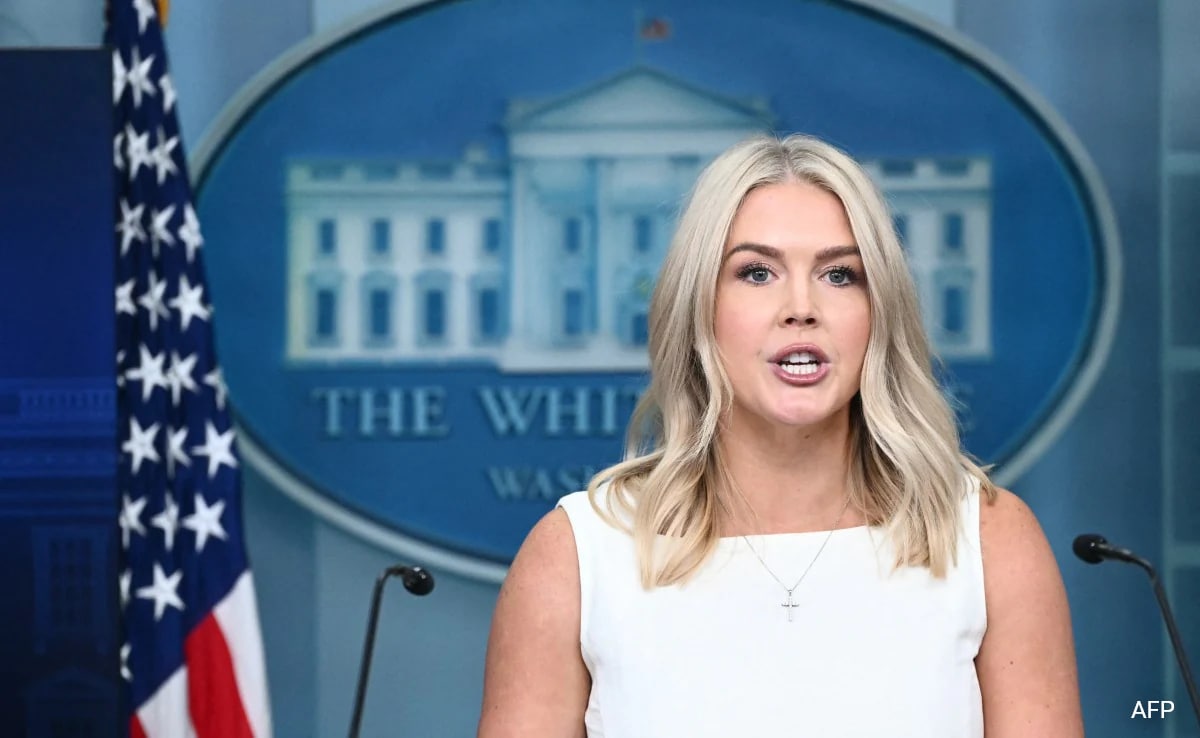

White House Press Secretary Karoline Leavitt has once again asserted that President Donald Trump was instrumental in ending the military conflict between India and Pakistan, claiming that he used trade as leverage to bring the situation to an end. This statement, made on Tuesday, reiterates a claim Trump has made repeatedly since May 10, 2025, when he initially announced on social media that the two nations had agreed to a "full and immediate" ceasefire after Washington-mediated talks.
Leavitt highlighted Trump's broader efforts in resolving global conflicts, stating that he has been using American strength to demand respect from allies and adversaries alike. She cited progress with Russia and Ukraine, and the resolution of seven global conflicts, including the India-Pakistan situation, which she suggested could have escalated into a nuclear war. "We've seen it with the end of the conflict between India and Pakistan, which could have resulted in a nuclear war if we had not had a President who believed in the strength and the leverage that comes with the job of being the President of the United States of America," Leavitt stated.
However, India has consistently denied that any third party intervention, including that of the U.S., was involved in reaching the ceasefire understanding with Pakistan. According to India, the cessation of hostilities was the result of direct talks between the Directors General of Military Operations (DGMOs) of the two militaries. Prime Minister Narendra Modi has also stated in Parliament that no leader of any country asked India to stop Operation Sindoor. External Affairs Minister S Jaishankar has also categorically stated that there was no third-party intervention in bringing about a ceasefire with Pakistan.
The recent conflict between India and Pakistan followed an attack in Indian-administered Kashmir that resulted in the deaths of 26 people, mostly Hindu tourists. The ensuing clashes reportedly led to more than 70 fatalities on both sides before the announced ceasefire. India accused Pakistan of supporting the attackers, a charge Islamabad denied, calling for an independent investigation.
Adding another layer to the situation, Leavitt mentioned that Trump has imposed sanctions on India to pressure them to help end the Russia-Ukraine war. Echoing this sentiment, U.S. Treasury Secretary Scott Bessent has accused India of "profiteering" by reselling Russian oil. Trump has imposed tariffs totaling 50 per cent on India, including 25 per cent for New Delhi’s purchases of Russian oil, set to take effect from August 27. India has responded by calling the tariffs "unjustified and unreasonable".
Despite India's firm stance, Pakistan formally recommended Trump for the 2026 Nobel Peace Prize in June, citing his role in defusing tensions between Islamabad and New Delhi and offering to mediate the Kashmir dispute.
These claims and counter-claims occur amidst a backdrop of strained trade relations between the U.S. and India. A U.S. team was scheduled to visit India for negotiations, but the visit was reportedly deferred. Bessent has also accused India of making $16 billion in excess profits through what he termed "Indian arbitrage," referring to the purchase of cheap Russian oil and reselling it.